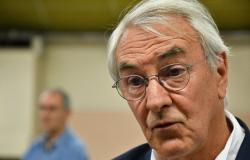Combining industrial expansion and preservation of forest heritage is no longer a utopian dream. The National Agency for Water and Forests (ANEF) is inaugurating an innovative program to modernize and professionalize cork harvesting thanks to the integration of new cutting-edge technology. This initiative is launched in parallel with the start of the cork harvest campaign for the year 2024 in the Rabat-Salé-Kénitra region.
This modernization program is part of the third axis of the strategy “ Forests of Morocco 2020-2030“, which aims to modernize forestry professions. It takes the form of strengthening the technical and material capacities of companies specializing in cork harvesting, the introduction of modern harvesting equipment, the deployment of appropriate incentive measures, as well as the establishment of training and supervision. adequate.
Approached by Hespress FR, Abderrahim Houmy, general director of ANEF, who explained to us that “as part of the implementation of the “Forests of Morocco 2020-2030” strategy, ANEF is delighted to launch today a pioneering operation integrating new technologies in cork harvesting. This initiative is part of Morocco’s commitment to modernizing forestry professions and optimizing the management of precious forests. The traditional method of harvesting cork, although effective in the past, often caused injury to the trees, threatening their health and longevity. Today, thanks to this new technology, we provide increased protection for trees. By reducing the physical damage caused by cork harvesting, we better preserve the trees, ensuring their vitality and their ability to continue producing quality cork for years to come.”.
Improving yield and preserving forests is now accessible
Second objective: improve performance. This new technology allows a significant increase in edging efficiency. “Thanks to sophisticated machines, the production of cork boards is increased while minimizing the production of residual pieces. This results in a more efficient use of resources, maximizing the quantity of usable cork and, therefore, adding value to each tree harvested.”, Houmy tells us.
Adapting to climate change, the key to any innovative project.
In an era where climatic vagaries are becoming a reality, sustainable solutions are more necessary than ever. In this sense, the CEO of ANEF underlines that “ we observe that, in recent years, harvest periods are becoming shorter and less predictable due to climate change. The new machines allow us to harvest cork in shorter time frames and with increased performance, making our process more resilient to climatic hazards.”.
This step is part of a broader approach aimed at better promoting the cork harvest and adapting to contemporary challenges. We plan to generalize this innovative system by 2025. And to conclude, Houmy declares that “this includes not only the training of professionals in this sector but also the provision of the necessary equipment on a national scale. Our goal is to see all Moroccan forests benefit from this modern method of cork harvesting.”.
Cork, a Moroccan wealth to be preserved
It should be noted that cork production requires over 27 years after initial planting. As part of this initiative, a training program is launched during the current campaign, in partnership with the Moroccan Association of Industrialists of Liège, and led by specialized trainers.
Also joined by Hespress FR, Anas Mohammed, President of the association who explained to us that “ The cork harvest campaign, although brief – extending from June 1 to the end of July – is of capital importance for our industry. As professionals, we face a demanding time constraint: maximizing our productivity to satisfy the growing needs of the market. Every day counts, and every action we take during this period is critical to our collective success”.
The current context adds an additional dimension to this challenge. Sharing with us the difficulties suffered by the sector, Anas Mohammed reiterates that after “two years marked by relentless drought, we faced mediocre harvests which caused unprecedented stagnation in the cork industry. However, in the face of these challenges, we do not let ourselves be discouraged. We are approaching this new campaign with this innovative technology and renewed determination”.
“Our objective is threefold,significantly increase the quantity harvested to meet demand, moreover thanks to respectful and advanced methods, we will avoid the damage often caused by traditional techniques and ooptimize times”, rejoices our interlocutor.
It should be noted that Morocco’s cork oak forests occupy the fourth largest area in the world, offering considerable economic potential to be exploited. These forests supply cork, a non-timber forest product, to around ten specialized industrial companies.
On average, these companies recycle more than 80,000 cubic meters of cork per year in favorable years. The development of these forests generates around 54 million dirhams in annual revenue on average for the 52 territorial municipalities concerned.
Morocco-Portugal, towards sustainability and resilience
This innovation was made possible thanks to a partnership between Morocco and Portugal, for this purpose, Francisco Carvalho, Amorim Portugal group administrator, revealed to us another aspect to which this innovation responds: the lack of specialists in cork harvesting. “Thanks to this innovation, even the least experienced can now harvest cork efficiently without risking injury to the trees.”, reveals the expert.
The major problem facing the world, and particularly the Mediterranean basin, is the injury inflicted on trees by inadequate harvesting practices. “ Traditional approaches can cause damage, creating openings where diseases can infiltrate, threatening the health and longevity of trees”, he explains.
In detail, he indicates that in Portugal, “we have spent years solving this challenge. This new technology represents the fifth generation of our continuous improvement process. It offers a solution that not only minimizes the risk of injury but also ensures a cleaner and more efficient harvest”.







